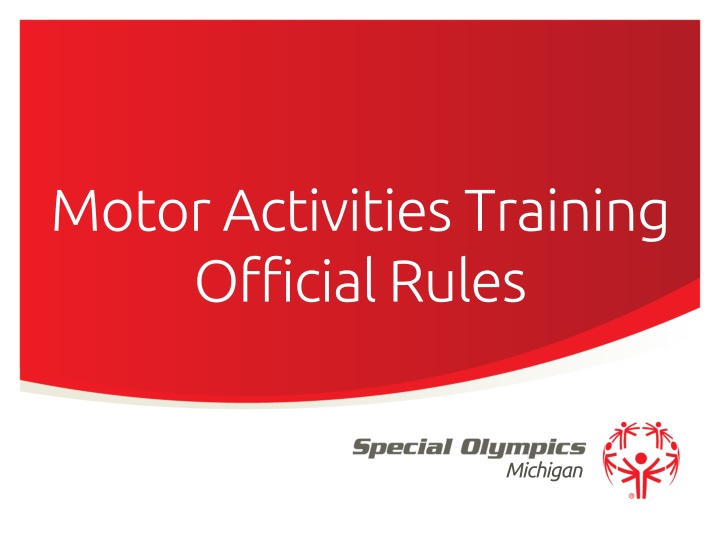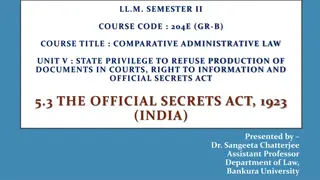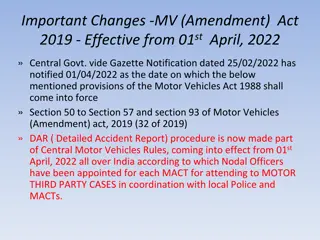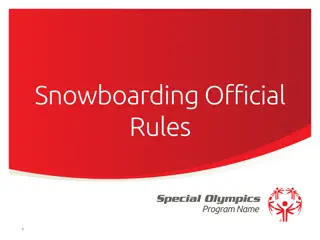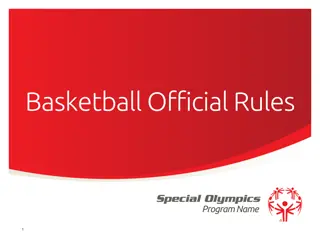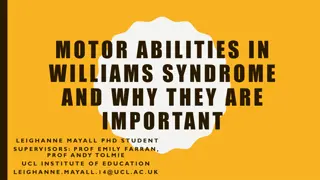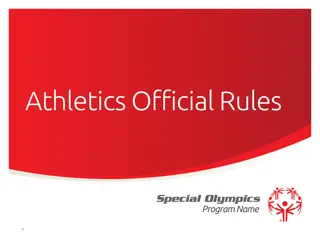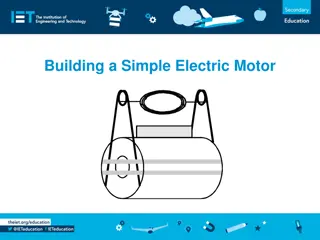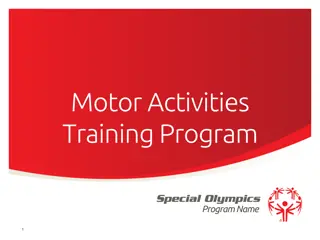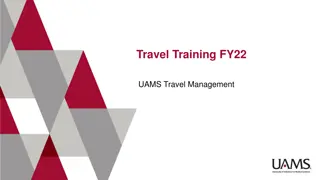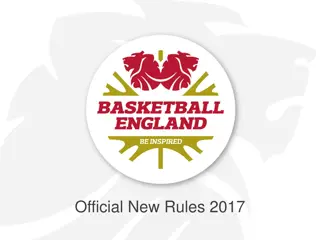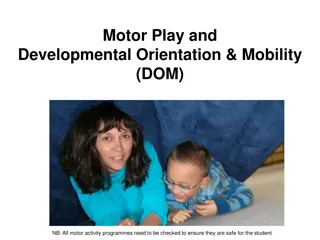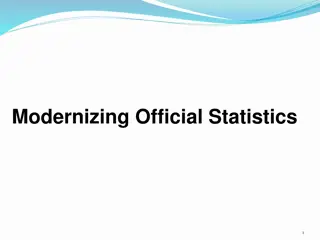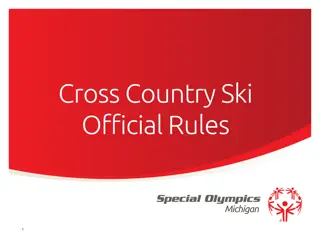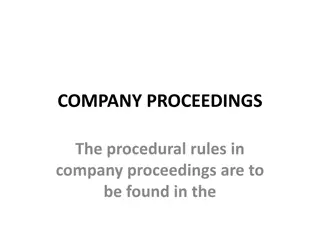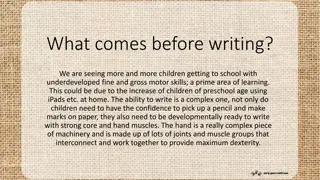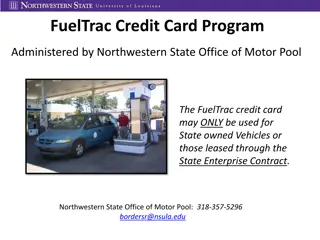Motor Activities Training Program Official Rules and Guidelines
The Motor Activities Training Program (MATP) in Michigan is designed for individuals with severe and profound disabilities who are unable to participate in official Special Olympics sports. The program offers a comprehensive curriculum for motor activity training, focusing on development rather than competition. Participants engage in a variety of activities such as manual and electric wheelchair events, dexterity challenges, striking, kicking, and mobility exercises. Coaches and chaperones must be trained and certified to ensure a safe and inclusive environment. Special Olympics Michigan emphasizes the importance of appropriate attire, equipment, and training for MATP athletes, culminating in the State Summer Games.
Download Presentation

Please find below an Image/Link to download the presentation.
The content on the website is provided AS IS for your information and personal use only. It may not be sold, licensed, or shared on other websites without obtaining consent from the author.If you encounter any issues during the download, it is possible that the publisher has removed the file from their server.
You are allowed to download the files provided on this website for personal or commercial use, subject to the condition that they are used lawfully. All files are the property of their respective owners.
The content on the website is provided AS IS for your information and personal use only. It may not be sold, licensed, or shared on other websites without obtaining consent from the author.
E N D
Presentation Transcript
Motor Activities Training Official Rules Michigan
The Basics Sport Season: January June Culminating State Events: State Summer Games
Events Offered Events Offered: Manual Wheelchair Electric Wheelchair Dexterity Striking Kicking Mobility Aquatics (Offered locally)
Equipment The following are suggested equipment needed to conduct a motor activities event: Balls and Bean Bags Bats and Sticks Batting Tees Ramps Bolsters Mats Flotation Devices Scooter Boards
Uniform Motor Activity Training Program athletes are Special Olympics athletes. Therefore, they should be dressed like their fellow Special Olympics athletes, to the greatest extent possible. Clothing should be comfortable and appropriate for the weather conditions but should also allow athletes to move freely in their sport activity. Shoes: Tennis shoes or soft-soled athletic shoes are recommended. As with all Special Olympics Michigan sports, denim is not allowed to be worn during competition.
General Rules The Motor Activities Training Program (MATP) is designed for persons with severe and profound handicaps, who do not yet possess the physical and/or behavioral skills necessary to participate in official Special Olympics sports.
General Rules The program provides a comprehensive motor activity training curriculum that can be administered by trainers such as physical educators, recreation personnel and therapists. In addition, direct care workers, parents, and volunteers will find the MATP helpful in developing appropriate motor programs for individuals with severe handicaps. MATP emphasizes training and participation rather than competition. Areas must have coaches trained and certified and are encouraged to host local training days in their area. Special Olympics Michigan offers MATP events at the State Summer Games.
General Rules In order to qualify for participation at the State Summer Games in MATP events, the following procedures must be followed: Coaches must attend one of the MATP training schools offered through SOMI and be certified. Must provide a 1 chaperone to 1 athlete ratio for all attendees. Due to the specific training required, area chaperones will be responsible for all lifting and movement of the athletes. Athletes must have trained for eight weeks. Specially prepared meals must be handled by the area. MATP participants who are capable of coming for the entire Summer Games and staying with the delegation may do so.
Levels The Motor Activities Training Program does not require a score, but the athlete entered into the event should have a designated level: Mobility: Level I: Participant will hold head off mat when placed on abdomen. Level II: Participant rolls to back when placed on abdomen. Level III: Participant will roll from stomach to back and back again. Dexterity: Level I: Participant will grasp and hold object. Level II: Participant will grasp and move object. Level III: Participant will grasp, move and release object toward target. Level IV: Participant will toss a soft shot put.
Levels Striking: Level I: Participant touches object that is placed next to his/her hand. Level II: Participant will push ball off tee. Level III: Participant forcefully swings arm and strikes ball off tee. Kicking: Level I: Participant will touch ball with foot. Level II: Participant will push ball forward with foot. Level III participant will kick ball forward. Manual wheelchair: Level I participant will place hands on wheels of wheelchair. Level II: Participant pushes wheels of wheelchair with assistance. Level III pushes wheelchair forward 3-5 feet independently.
Levels Electric wheelchair: Level I: Participant will touch switch on electric wheelchair. Level II: Participant propels electric wheelchair by pushing switch. Level III: Participant propels electric wheelchair in forward direction by manipulating switch. Aquatics: Level I: Participant will tolerate water for increasing periods of time. Level II: Participant floats on his/her back using flotation device. Level III: Participant propel self in water. Level IV: Participant swims forward in water.
